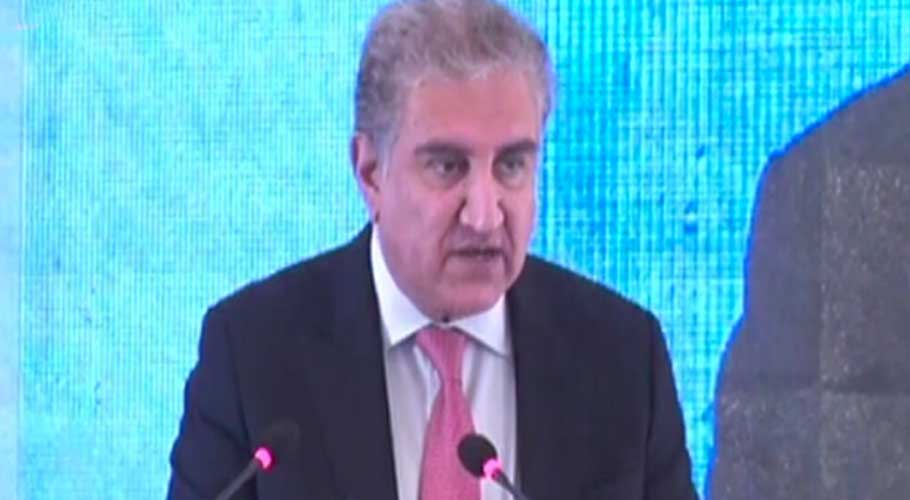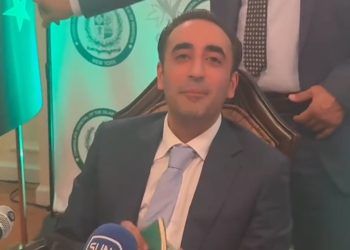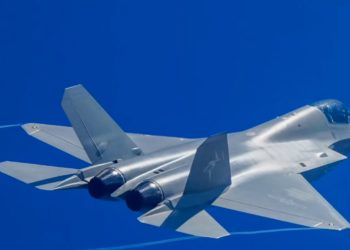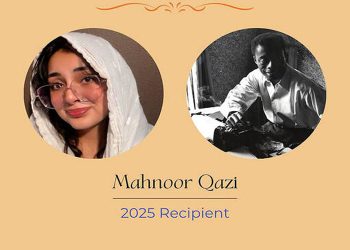ISLAMABAD: Foreign Minister Shah Mehmood Qureshi on Monday asserted that Pakistan wanted a relationship with the United States that was in line with the changed priorities of the former from “geopolitics to geoeconomics”.
“We value our relations with the US. Looking towards the future, we don’t want a transactional relationship with the US. We want multifaceted ties that are not susceptible to the vagaries of regional and international policies,” the foreing minister pointed out.
FM Qureshi made these remarks at the Margalla Dialogue Forum 2021 – Foreign Policy Challenges of the Future in a Changing Geopolitical Landscape, organised by the Islamabad Policy Research Institute (IPRI).
The foreign minister, in his address, spoke at length on various issues concerning Pakistan’s foreign policy and diplomacy, including the humanitarian situation in Afghanistan, bilateral relations with China, the United States, Russia, and India, as well as the importance of a just resolution of the Kashmir dispute.
Qureshi said, “In line with Prime Minister Imran Khan’s vision for a shift from geopolitics to geo-economics, we want a relationship with the US that is in sync with our changed priorities.” He added that enhanced trade and investment ties with the US, along with cooperation in regional connectivity would work for the benefit of both countries.
With Russia, the foreign minister said Pakistan’s diplomatic outreach had not only led to a rapprochement but opened doors for reinvigorated relations in the security and economic realms. “The Pak-Russia trajectory is contributing to stability in the region and we will continue to strengthen it,” he maintained.
He added, “The upshot is that a country like Pakistan sitting astride the crossroads of South, Central and West Asia cannot make binary choices. We will remain equidistant, accessible to all, reaching out to all.”
“And, directly connected to all this, is the situation in Afghanistan,” he said, adding that the United Nations had also warned that 60 per cent of Afghanistan’s 38 million people were facing hunger or starvation.
“There is a dire humanitarian crisis looming which has consequences not only for the people of Afghanistan but indeed us as neighbours, the region and beyond,” FM Qureshi said.
He added that Pakistan will host an “extraordinary session” of the Organisation of the Islamic Cooperation (OIC) on December 19 to mobilise support for providing adequate food, medicine and housing to millions of Afghans in dire distress.
“Indeed, I believe Pakistan hosting the OIC Extraordinary Meeting of Foreign Ministers on Afghanistan is in line with the leadership role that the country has demonstrated in the region,” he highlighted.
‘Changed priorities’
The foreign minister said that with the current escalation of strategic competition among global powers undermining world peace and making diplomacy unpredictable, Pakistan has shifted its focus from geopolitics to geoeconomics. “This has made economic diplomacy all the more important,” he added.
“Indeed, we live in a time of uncertainty. The world order seems to be in a state of severe stress and disarray. In these times, foreign policy and geopolitics are largely linked to geoeconomics. From here on, the economy is in many ways our strategic compass, with a dominant presence as a priority of foreign policy,” he remarked.
The FM said that positioning Pakistan as a geoeconomic centre with unparalleled regional connectivity has to come as a mindset from the top down. “We have had to reset the existing geopolitical mindset and embrace the importance of geoeconomics,” he added.
Highlighting the benefits of a focus on geo-economics, Qureshi shared with the audience that as of November 2021, Pakistan’s exports to the UK had grown 28pc in a Covid year. “Also, since our Engage Africa Conference in December 2019 in Islamabad, trade with Africa has gone up 7pc,” he mentioned.
Qureshi said that according to Bloomberg, this year alone, $300m have been invested in start-ups in Pakistan by the US, Singapore, and UAE. “This is a modest beginning with a huge surge expected in the tech industry in the near future,” he added.
Foreign policy challenges and the Kashmir issue
Speaking about the foreign policy challenges vis-à-vis India, the Foreign Minister said that Pakistan’s quest for peace and geo-economic strength cannot be a solo performance, adding that it takes two to tango.
Soon after taking office, he recalled that the current government made overture after overture, unilaterally, to open channels of communication, build confidence, and engage India. Our eastern neighbor, on the other hand, has chosen to close all doors to any kind of discussion, he said.
“What’s more, it took the most drastic militaristic steps to invade and lay siege to the disputed territory of the Illegally Occupied Jammu and Kashmir (IIOJK), disenfranchise its 14 million people, and brutalise them,” he added.
The Foreign Minister said that New Delhi’s actions in Indian Illegally Occupied Jammu and Kashmir have created a conundrum for Indian apologists in Kashmir and even for India’s foreign friends. He regretted that “Indian atrocities are too egregious to be masked by the veneer of secularism and democratic pretensions.”
The Foreign Minister said that it was the duty of the United Nations and the international community to hold India accountable for this unconscionable state of affairs.
”India must realise that without resolving the Kashmir issue, we cannot free the peoples of South Asia from perennial instability. Without the necessary global condemnation and intervention, the region will continue to remain insecure and peace and prosperity, a major challenge,” he maintained.




































